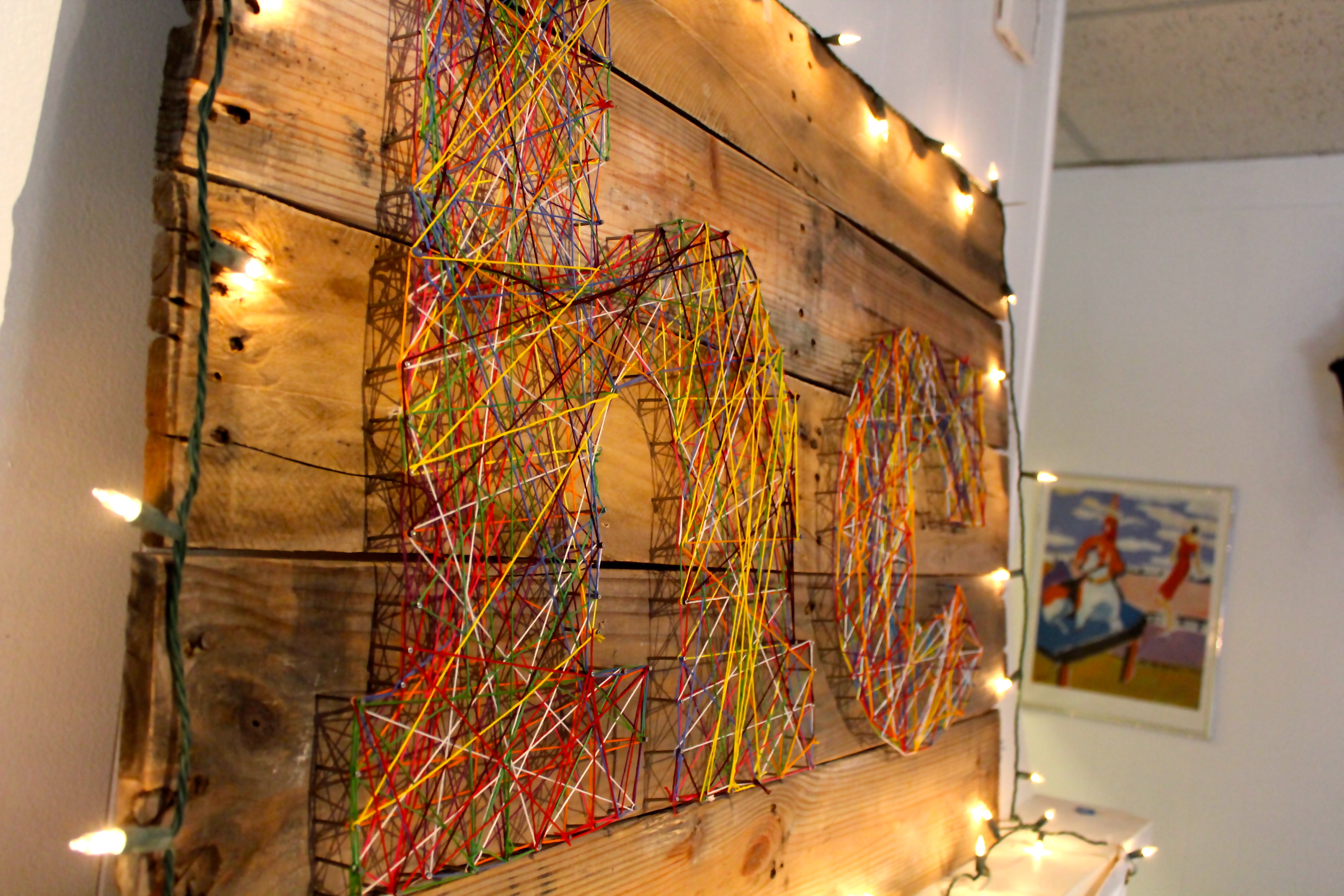Three years after its inception, what began as the little “experiment on Elliewood” is now a thriving creative clubhouse for entrepreneurial University of Virginia students.
HackCville’s mission is simple: “We start people. Not ups.” Its goal is to help students use an entrepreneurial mindset to pursue their passions, whether that’s launching a new company or just mastering a new skill.
Opened in 2012, the clubhouse has evolved from an ad hoc workspace on Elliewood Avenue for the entrepreneurial-minded into an innovative – and completely student-run – accelerator. This spring marks the group’s first full year of total student leadership. In that time, the club’s influence has expanded rapidly.
As its name implies, HackCville began as a meeting space mostly for people with an interest in coding or technology, particularly those areas that could be linked to the standard idea of a start-up. That changed as more students began to see the benefits of the open collaboration space.
“Over time, HackCville has just evolved to reflect the needs of its members,” said Alyssa Dizon, the group’s outgoing director and a rising fourth-year student.
When Dizon first joined the group in 2013, she was looking for workspace to launch a new student publication. “It was very bootstrap then, very ‘bring your own chair,’” she said.
Recognizing the growing demand for HackCville’s collaborative environment, Dizon worked with the HackCville’s founder, 2010 alumnus Spencer Ingram, to formalize its structure and transition it from a private non-profit organization into a “Contracted Independent Organization” with U.Va. As a CIO, HackCville will have greater access to the University’s resources and many new funding opportunities.
By earning the support of U.Va.’s Galant Center for Entrepreneurship, the U.Va. Parents Committee and numerous donors, HackCville was able to expand its reach. In its first semester of full student leadership, the club offered educational programming to over 500 students and hosted more than 60 events.
Today, HackCville has more than 100 active members and a growing list of U.Va. graduates who have registered to join “Wahoowa,” its network of alumni innovators. Member activities and student-led courses now cover topics ranging from HTML coding to bitcoin, poetry and even sewing machine lessons.
In the fall, HackCville admitted its first official “Hustle Class,” a group of 33 students who applied to join the club by explaining how they would contribute and what they hoped to gain. One class is admitted each semester, and this year’s “hustlers” are already doing some amazing things.
Rising third-year student Will Henegan started U.Va.’s community-supported agriculture program, Greens to Grounds, an initiative that connects students, faculty and staff with fresh local produce each week.
Rising fourth-year student Kelsey Miller is a co-founder of the student-run advertising company rADical. The agency already has so many local and national clients that Miller and some of her fellow students have forgone traditional summer internships in order to continue working out of the HackCville house.
Others in the class of innovative students include app designers, artists, bakers and more. But not every member comes in with a clear goal. HackCville is designed to let their hustlers experiment and ask for help.
“Failure is part of it,” said Ingram, who now sits on HackCville’s advisory board. “Students are playing with real projects and putting them out in the world and letting people step on them. Then they rebuild and get tougher.”
Part of the real-world testing for HackCville members comes through the Wahoowa alumni network. Since the organization is too new to have had many members graduate, Dizon and her fellow managing board member, rising fourth-year student Daniel Willson, decided to reach out to alumni with similar innovative goals.
“This network started growing almost by accident last summer,” Willson said.
Now HackCville’s alumni relations manager, Willson said the idea to reach alumni began while he was interning in New York over the summer and Dizon in San Francisco. Both had met alumni who were interested in the HackCville concept and expressed willingness to connect with current students and alumni with entrepreneurial interests.
Willson and Dizon each planned a student-alumni meet-up in their respective cities. They were thrilled by the huge response; more than 100 attendees in New York and 75 in San Francisco.
“Next thing we know, we have this growing national community of alumni who are either working in start-ups or interested in that realm and wanting to connect with what’s going on at U.Va,” Willson said.
Now together with Wahoowa members, HackCville sponsors three start-up tour trips a year – one each in Charlottesville, New York and Washington – where attendees meet with working alumni and tour successful start-ups. This has proved an invaluable networking experience for many, often leading to job and internship opportunities.
“We’re seeing this need from the student body that they want to get their hands on a project and have a chance to mentor with someone in a somewhat unconventional employment,” said HackCville’s incoming director, Adam Ghazzawi, a rising third-year student.
This summer, HackCville will team up with a partner, WeWork, a national chain of co-working spaces, to host seven simultaneous sessions for like-minded students and alumni in cities all across the United States. The three-hour informal gatherings will be held June 11 in Charlottesville; New York; San Francisco; Washington; Seattle; Austin, Texas; and Boston.
“As a student, it’s been really rewarding to see how large and incredibly gracious the start-up alumni community has been,” Willson said. “We have lots of folks who have become founders, but still make time to teach and participate.”
With the next class of hustlers in mind, HackCville is seeking new learning experiences for its members and building its support network of Wahoos who think outside the box.
“I’m hoping that when students walk through our door, they just see opportunity,” Ghazzawi said.
Media Contact
Article Information
May 20, 2015
/content/hackcville-students-take-charge-their-own-entrepreneurial-ecosystem

